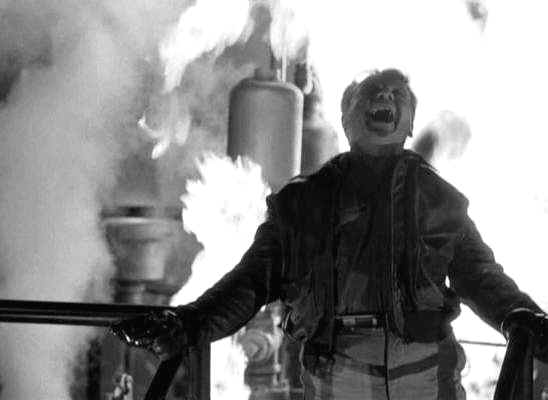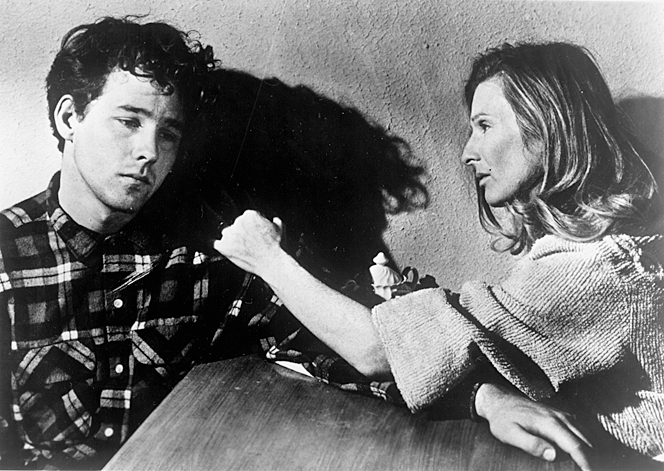 'Made it Ma. Top of the storage tank!'
'Made it Ma. Top of the storage tank!'Film Review Archive (date seen: October 4, 2010)
One of the cornerstones of the "crime" genre, featuring arguably its most recognizable face: That of James Cagney as Cody Jarrett, a criminal trying to shoot and rob his way from the vile bottom into the top of the world. But as one would watch the film, Jarret is indeed its heart (or the absence thereof) and soul, but never is the straightforward focus of the film.
"White Heat" gets its main tension and suspense from Vic Pardo's (played by Edmond O'Brien) undercover mission to evade Jarrett's circle. But it was indeed a great treatment for the film as it has able to magnify Jarrett's psychosis by way of viewing him and his actions through the eyes of an outsider and as a result, it has heightened the effect of alienation and disgust to Jarrett's actions even more. Another great part of the film is its detailed portrayal of a police procedural at the time, with a primitive positioning system as a particular highlight.
"White Heat" is an unforgettable thematic journey into the "crime does not pay" territory of the gangster genre, and with it heading into an explosive climax that may very well be the maxim's definitive companion image.
"White Heat" gets its main tension and suspense from Vic Pardo's (played by Edmond O'Brien) undercover mission to evade Jarrett's circle. But it was indeed a great treatment for the film as it has able to magnify Jarrett's psychosis by way of viewing him and his actions through the eyes of an outsider and as a result, it has heightened the effect of alienation and disgust to Jarrett's actions even more. Another great part of the film is its detailed portrayal of a police procedural at the time, with a primitive positioning system as a particular highlight.
"White Heat" is an unforgettable thematic journey into the "crime does not pay" territory of the gangster genre, and with it heading into an explosive climax that may very well be the maxim's definitive companion image.










